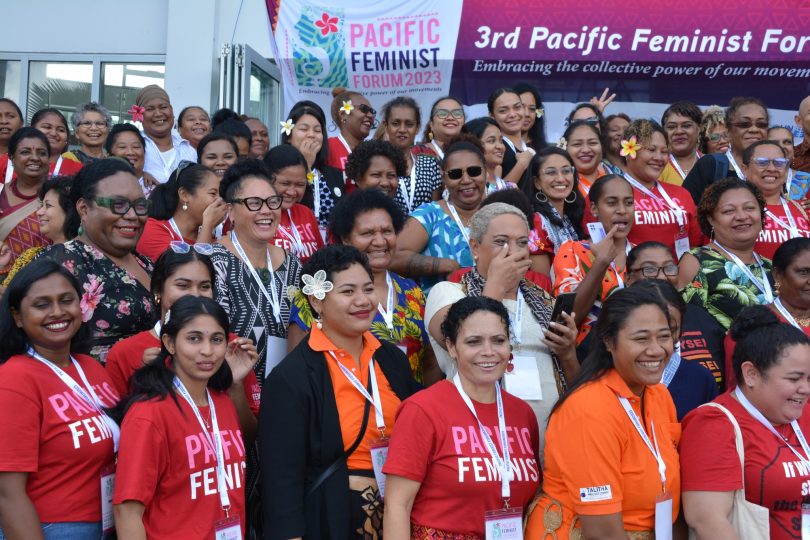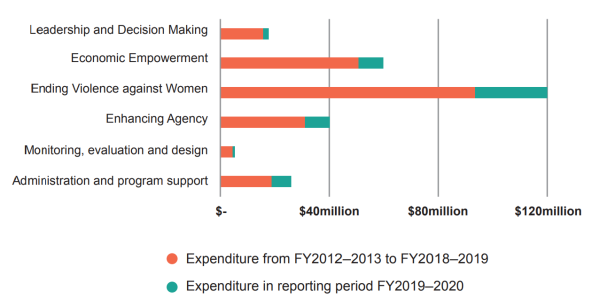The Pacific Islands Forum Leaders Meeting in Rarotonga, Cook Islands, last month committed to a revitalised gender equality declaration. This declaration, spearheaded by the Pacific Islands Forum Secretariat, was subject to extensive consultation across the region. The first of its seven priority areas is “political leadership and regionalism”, in which leaders have committed to accelerated actions to strengthen the participation of women and girls in all their diversity “at all levels of leadership and decision-making”.
In various ways, women’s political leadership in the Pacific has changed over the last ten years. In 2023, women were represented in the parliament of every national jurisdiction in the region for the first time. Before then, no woman had ever been elected to the legislature of the Federated States of Micronesia. In 2021, the region saw its first female head of government, Fiamē Naomi Mata’afa, elected in Samoa. This followed the region’s first female head of state, Hilda Heine, in the Republic of the Marshall Islands in 2016. Women have held diverse executive portfolios in office, serving as deputy prime minister and leader of the opposition, and as ministers for foreign affairs, education, home affairs and justice, to name a few.
These quantitative gains, however, have been met with increasing levels of violence against women in politics. This finding is not unique to the Pacific of course. In the same way that Susan Faludi identified in 1991 “backlashes to women’s advancement” in the “episodes of resurgence … triggered by the perception – accurate or not – that women are making great strides”, women leaders in the Pacific are facing an increasing barrage of sexism specifically intended to dissuade them from continued participation and leadership in the political sphere.
In its outcome document, this year’s Pacific Feminist Forum noted “attempts by right-wing and fundamentalist movements working for increased patriarchal control and denial of bodily autonomy”. The US-based National Democratic Institute, in collaboration with femLINKpacific and USAID, reported increasing incidents of psychological violence against women leaders, particularly with the rise of social media, in the form of “hate speech” and “defamation – disguised as gossip”:
One senior female political leader participating in the research recounted a Facebook posting of a naked picture with her face cropped into the photo. Another female leader from Fiji explained … “Public defamations during elections jeopardize your credibility due to competition or jealousy. There is also a likelihood of tapping communication devices. Moreover, character assassinations lead to mental health disturbances and anxiety.” (page 18)
Women’s leadership and decision-making (LDM) has been a longstanding pillar of Australia’s gender equality programming in the Pacific. But the final report of Pacific Women Shaping Pacific Development (PWSPD) shows that funding under this thematic pillar amounted to less than the total cost of administration and program support (Figure 1). It has also been consistently siloed from programs related to violence against women (VAW) and women’s economic empowerment.
Figure 1: Distribution of PWSPD funding over the life of the program
From Pacific Women Shaping Pacific Development Final Report 2012-2021, page 61.
Given the increasing levels of violence perpetrated against women in politics, there is clearly an imperative to consider our gender equality programming in less siloed ways. Specifically, how could we integrate a VAW perspective in leadership and decision-making programming?
The answer, I suggest, lies in a cross-pollination of VAW and LDM programming. DFAT’s “do no harm” principle, articulated in its Environmental and Social Safeguard Policy, provides a useful conceptual and programmatic framework. In 2018, a research partnership between ANU’s Department of Pacific Affairs and the International Women’s Development Agency developed a “do no harm” toolkit which outlined a number of useful strategies that cross-pollinate VAW with women’s economic empowerment programming (Table 1). These strategies could well be applied to women’s LDM programming.

LDM programs could support women survivors by investing in research that better understands the nature and impact of violence on women leaders, activists and voters. This research should explore the full extent of the physical, psychological, sexual, economic and semiotic violence perpetrated against women and gender minorities in the Pacific. Ideally, this research would be institutionalised through collaboration with crisis centres across the region and gender experts including Shamima Ali in Fiji, ‘Ofa Guttenbeil-Likiliki in Tonga, and Merilyn Tahi in Vanuatu.
LDM programs could support the transformation of gender equality by engaging women leaders’ support networks on discussions of gender norms and gender-based violence, and monitoring, sharing and discussing perceptions of women’s leadership in the community and the workplace.
LDM programs could support an increase in women’s participation in programs by extending the definition of “leadership” when looking to work with women (that is, not just political leaders), and mapping their presence and influence through different research methods, including social network and discourse analysis.
LDM programs could support a change in men’s attitudes and behaviours by engaging men in targeted activities that celebrate and showcase women leaders, and working to minimise the perception that women’s leadership is a threat to men personally.
LDM programs could establish formal partnerships with experienced VAW service providers and consult gender-based violence experts to design tools that help women leaders safely self-assess their morale, physical safety and financial security.
A less siloed approach to leadership is critical if the revitalised Pacific leaders’ gender equality declaration is to be realised, and accelerated measures adopted.
Disclosure
This research was supported by the Pacific Research Program, with funding from the Department of Foreign Affairs and Trade. The views represent those of the authors only.



Leave a Comment